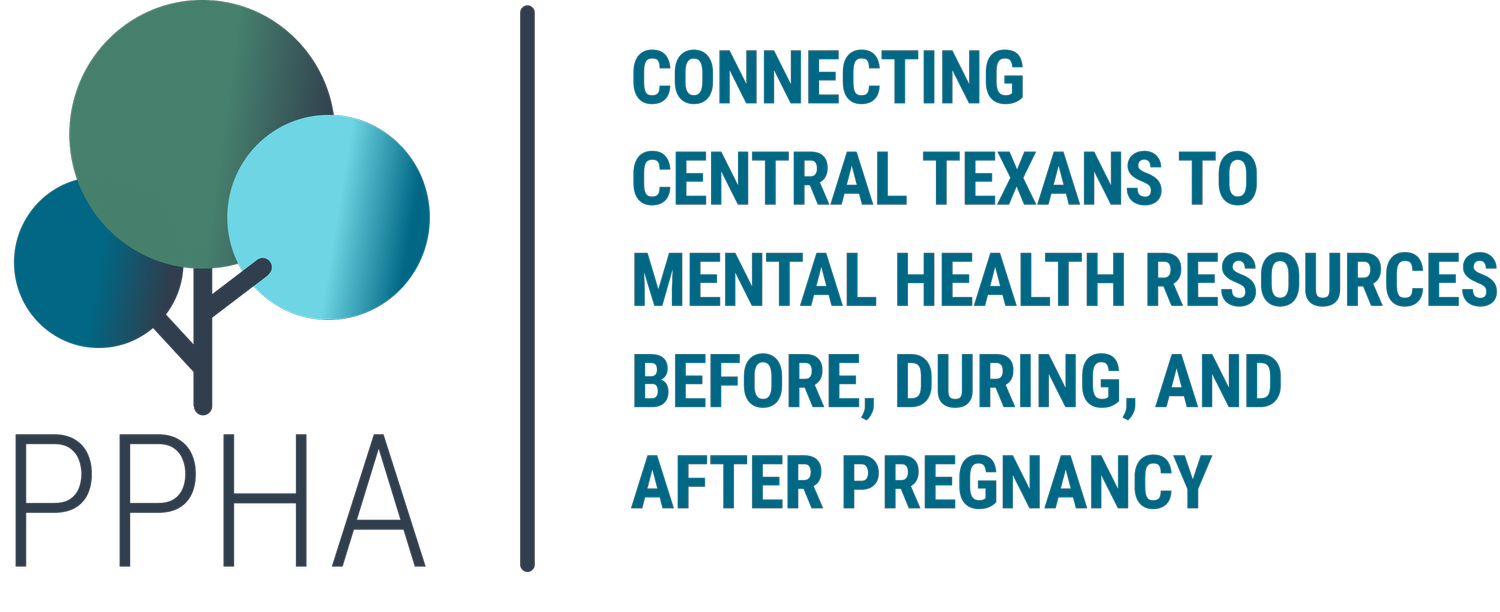It’s not uncommon that clinicians throw around acronyms and words that others don’t understand. Just like other professions, the healthcare industry has its own terminology that can be difficult to follow if you’re not trained in it. In fact, there are even courses available to receive a Medical Terminology Certificate.
To further complicate terminology in medicine, different medical specialties use acronyms and phrases that those within other specialties are not familiar with. In the perinatal mental health world, we often throw around a lot of terminology that even other mental health providers are not privy to. This is one of the many reasons we believe it is imperative for all mental health providers involved in treating perinatal patients to receive specific training in this realm.
We thought it might be helpful for others to clear up what some of the phrases, words and acronyms mean around perinatal mental health, as well as the various levels of care. Don’t know what perinatal means? No worries, we’ve got that one covered too.
Levels of Care in Mental Health:
Outpatient treatment
This refers to the lowest level of care and takes place in an office setting. Typically outpatient therapy appointments last 40 minutes to 60 minutes and occur anywhere from 2-3 times a week to once a month. Outpatient psychiatric treatment appointments last less than an hour, as well, and occur weekly to annually.
IOP (Intensive Outpatient Program)
This refers to therapy that is occurring multiple hours a day for multiple days a week. These programs usually take place in an office setting, but can sometimes be located at hospitals. It is more frequent than outpatient therapy, but less frequent than PHP. Patients usually see a psychiatrist who is involved with the IOP once or twice during the program, but will see a therapist in a group setting during the program days.
PHP (Partial Hospitalization Program)
This refers to treatment that occurs for the majority of the day, 4-5 days a week. The setting is usually at a hospital, but patients do not stay the night in the hospital. While in a PHP, patients are usually seen by a psychiatrist associated with the program a few times, in addition to the therapists they work with during the program days.
Inpatient treatment
This is the highest level of care. While a patient is inpatient, they are staying in a hospital all day and usually unable to leave the hospital grounds. Inpatient hospitalizations typically last 3-5 days on average; however, it can range from less than 24 hours to months. Long-term hospitalization is a different type of hospitalization that is much more rare, where patients spend months to years in the hospital.
Terminology:
Perinatal - usually refers to the period of time from conception to one year after delivery, or one year postpartum.
Prenatal - the period of time from conception until labor, also known as antepartum.
Peripartum - the period of time around birth. This is less well-defined, but usually refers to the few weeks leading up to birth, and the few weeks following birth.
Antepartum - the period of time from conception until labor, also known as prenatal.
Intrapartum - the period of time from the onset of labor until delivery of the infant and placenta.
Postpartum - typically this is the period of time from delivery until 12 months after delivery; however, others may define it as being from the time of delivery to anywhere from 6 weeks after delivery to 2 years after delivery.
Gestation - refers to the period of time during pregnancy starting from the first day of the last menstrual cycle. Often used to describe the age of the fetus.
Preterm labor - labor prior to 38 weeks gestation.
PMAD - perinatal mood and anxiety disorder
PPD - postpartum depression
PPA - postpartum anxiety
PPND - paternal perinatal depression
PND - perinatal depression
PMD (vs PMDD) - perinatal mood disorder. PMDD is an acronym for premenstrual dysphoric disorder, which is unrelated to pregnancy.
EPDS - Edinburgh Postnatal Depression Scale
CBT - Cognitive Behavioral Therapy
DBT - Dialectical Behavioral Therapy
CPT - Cognitive Processing Therapy
EMDR - Eye Movement Desensitization and Reprocessing
IPT - Interpersonal Psychotherapy
IOP - intensive outpatient program
PHP - partial hospitalization program
DSM-V - Diagnostic and Statistical Manual of Mental Disorders, fifth edition
LBW - low birth weight. Refers to the weight of a newborn.
LGA - large for gestational age. Refers to the size of a fetus
SGA - small for gestational age. Refers to the size of a fetus. The acronym, SGA, is also used to refer to a class of medications, called second generation antipsychotics.
MCM - major congenital malformations
NAS - neonatal adaptation syndrome
PPHN - persistent pulmonary hypertension of the newborn
SSRI - selective serotonin reuptake inhibitor
SNRI - serotonin-norepinephrine reuptake inhibitor
TCA - tricyclic antidepressant
ECT - electroconvulsive therapy
This blog post was written by Kristin Yeung Lasseter, MD who is the current Medical Director of PPHA and Psychiatrist at Reproductive Psychiatry Clinic of Austin
